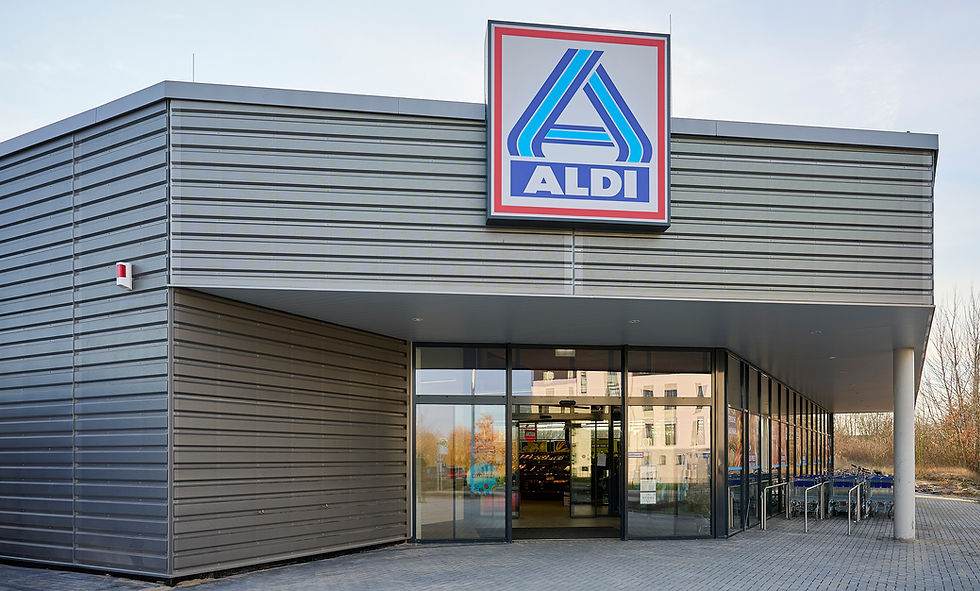Germany: Minced meat from the bag:
- DRC Discount Retail Consulting GmbH

- Jun 16, 2021
- 3 min read
Discount Retail Chain Aldi (privately family owned) started with the ambitious goal of saving plastic as much as possible. With German start-ups, the discounter has shown ways in which packaging waste can be saved. The idea is not new. Supermarkets such as Edeka and Rewe also set high goals. There are reasons for this, which we also explain in the video.
Anyone who buys minced meat from Aldi Süd, Aldi Nord, Lidl or Rewe will now find the meat in a practical plastic bag. Flowpack (see photo at the end of the article) is what the sellers of the markets say. Instead of a box, lid and protective pad, the minced meat is now in a plastic bag.
Rewe first introduced the concept, in February 2020 the hack bag also appeared at discounter Primus Aldi Süd, and in June 2020 it was also available from Aldi Nord. Arch-rival Lidl also followed suit with the flowpack concept.
It is just one of many measures that have already been implemented at Rewe, Aldi, Lidl and Co. to save packaging waste. Many more are to follow. Aldi alone wants to reduce packaging waste for its own brands by up to 30 percent by the end of 2025.
This is one of the reasons why customers are discovering more and more changes in the branches. Initially, for example, the plastic bag at the checkout was abolished, then the discounter removed the plastic film from the cucumber and instead of packaged fruit and vegetables, customers can now take the goods in the desired quantity from the cardboard box or box, have them weighed at the checkout and pay.
By 2025, half of the fruit and vegetable counter should consist of loose goods. So far, Aldi has relied on the bestsellers and arch-rival Lidl is also pursuing similar goals. Loose fruit and vegetables have also led to an increase in sales in the branches.
Aldi organic tomatoes are packaged in a specific eco-friendly way
A simple example shows how important such measures are: Aldi was able to save almost 120 tons of plastic simply because the popular organic tomatoes were packed in a box made of renewable grass fiber. Loose fruit and vegetables have also led to an increase in sales in the stores.
Supermarkets generate a lot of packaging waste
However, because the problem cases in supermarkets are lined up meter by meter, criticism hails again and again. The waste disposal industry wants a new course. As examples, Axel Schweitzer, head of the disposal company Alba, cites plastic trays in which sausage or cheese are stored, and plastic cups that are wrapped in cardboard and sealed with aluminum foil.
Such packaging cannot be separated in sorting systems or is only very difficult to separate, which is why they are incinerated to generate energy. "This means that they are forever withdrawn from the circular economy." This needs to be changed. Competitors like Veolia and Remondis see it similarly.
Plastic and plastic trays have many advantages for manufacturers and consumers, as the food has a long shelf life. The problem: If you go to a supermarket, you will find such bowls almost everywhere.
This is another reason why the goals of the supermarkets are ambitious. Almost all retailers do not want to completely ban plastic and plastic, they just want to greatly reduce packaging waste. The plastic or plastic packaging remains where it is still needed.
See here for more: https://www.chip.de/news/Hackfleisch-aus-dem-Beutel-Warum-Aldi-Rewe-und-andere-auf-die-Hack-Box-verzichten_183657394.html





Comments